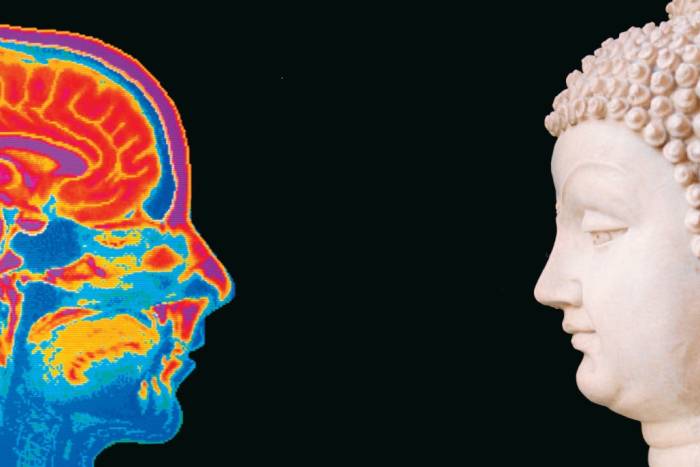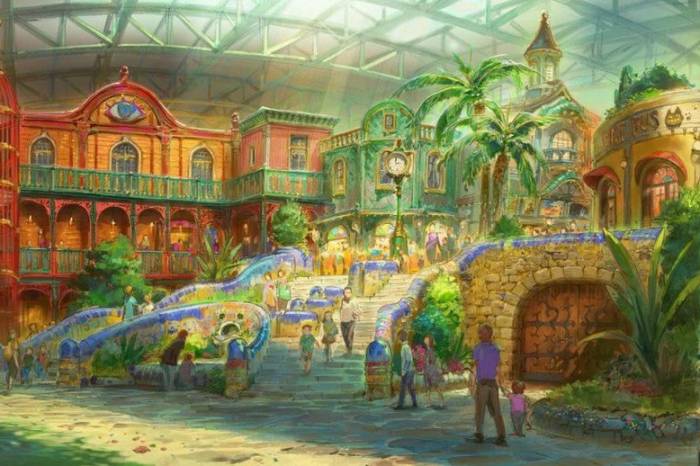A New Year's resolution for the earth
Some simple, seemingly small actions allow us to use only what we need and to reduce waste.
Worrisome quantities of waste are generated by human populations. Especially in cities, these have reached unprecedented and alarming levels. A largely uncontrolled practice, it affects everything on the planet (including us). This is why it is quite unbelievable that governments and similar authorities have so far not taken more decisive measures. But every person in every household in the world can make a difference by changing consumption habits and by being aware that even small actions if carried out by enough people, can help.
Materials like plastic (once considered synonymous with the advancement of human technology) inundates oceans, rivers, and forests, seriously affecting both plants and animals. The numbers in reference to plastic waste speak for themselves: it takes between 500 and 1,000 years for plastic to decompose. Plastic makes up 10% of all the waste generated by people. In the last ten years, humans have produced more plastic than in all previous history of life on the planet. Every year, 5 billion plastic bags are used in the world, and 50% of the plastic we use is never reused. Annually, enough plastic is discarded to circle the Earth four times. Finally, pulverized plastic ends up in the oceans where it contaminates water and the food of everything that inhabits the sea. It’s not just a worrisome situation, but one that’s absurd. We need to begin asking how much of the plastic we consume is unnecessary and which of it can be eliminated.
Normally, lists of New Year’s resolutions include plans regarding ourselves and our goals. They’re intended to correct those parts of ourselves that make us unhappy or displeased. But what would happen if this year we began with a purpose, not just about us, but to have a positive impact on the planet, its ecosystems, and all the beings with whom we share this same planet? What would happen if a good number of the world’s inhabitants all resolved at the same time take these measures? While the idea is romantic, it’s hardly unreasonable.
Here are some important and simple actions to reduce consumption and the production of more garbage…
- Separate your garbage and recycle everything you can.
-
When you buy food, choose products without packaging or that’s sold in less polluting packaging made of paper or cardboard.
-
Never use plastic bags. It’s better to carry fabric shopping bags that can be re-used.
-
Use a reusable water bottle or container that can be washed instead of buying single-use plastic water bottles.
-
Always wash and reuse glass containers.
-
Repair shoes and clothing instead of buying more.
-
Don’t use coffee makers that rely on metal or plastic cartridges. If you do, then recycle the used cartridges.
-
Use bar soap (sold in paper or cardboard packaging) instead of bath gel.
-
Make a conscious effort to buy less clothing, and give away what you don’t use. Discarded garments represent a huge percentage of garbage, and the industry is among the most polluting.
-
Use biodegradable soaps, detergents and cleaning products. All of them eventually end up in rivers and the sea.
-
Replace cling-wrap for food storage with waxed paper or biodegradable plastics.
-
Use biodegradable waste to make compost in your garden or organize with neighbors to make community compost and use it to fertilize plants and gardens.
-
Avoid the use of drinking straws, which are an unnecessary comfort.
-
Use reusable mugs or thermos bottles and bring them with you when you buy coffee or tea.
-
If you order to-go or take-out food, ask that it be delivered without plastic cutlery.
-
When eating ice cream, use cookie cones and not plastic cups.
-
Use menstrual cups instead of other feminine items whose composition and packaging relies on plastic.
-
Look for a wholesale food outlet and bring your own jars and containers.
-
Share this information with as many people as you can.
Image: Johnson Space Center, NASA.
Related Articles
When ancient rituals became religion
The emergence of religions irreversibly changed the history of humanity. It’s therefore essential to ask when and how did ancient peoples’ rituals become organized systems of thought, each with their
Larung Gar, the valley that is home to thousands of Buddhist monks
If we think about the monastic life it is very probable that we think about solitude, seclusion, silence and a few other qualities whose common denominator is the appropriate isolation for mediation
Dialogue with the Dalai Lama on science and spirituality
The Dalai Lama has been interested in science since he was a child. Over the years he’s visited many laboratories and has attended conferences that discuss consciousness from the scientific point of
The Dark Mountain Project: or how literature can confront ecocide
One impulse from a vernal wood May teach you more of man, Of moral evil and of good, Than all the sages can. Wordsworth, “The Tables Turned” (fragment) Words are elementary. The only reason we can
Are there no women in the history of philosophy?
Do only men philosophize? This could sound like a silly question, but if we quickly review the names of philosophers, from Aristotle to Slavoj Žižek, it would appear to be an exercise that is
Things that are about to disappear: photography as environmental conservation
Cristina Mittermeier is the founder of the International League of Conservationist Photography (iLCP), and is at the front of a modern movement to use photography with environmental purposes. Her work
Architecture And Music; An Affair That Acts On The Matter
A composition is like a house you can walk around in. — John Cage Perhaps music, more than the art of sound, is the art of time. That’s why its communion with space, and architecture, is so often so
Psycho-geography (On The Ritual Casting of a City)
Mrs. Dalloway walked down the streets of London guided by an “internal tide” that made her stop somewhere, enter a store, turn at the corner and continue her journey, as if she were adrift. La dérive
A Theme Park Inspired by Hayao Miyazaki is About to Open …
One of animation’s most spectacular exponents, Hayao Miyazaki, is the artist who transformed the direction of traditional animation forever.
Machines of the Island: A Bestiary of the Impossible
On the banks of the Loire River, in the former shipyards of the French port of Nantes, Les Machines de l’île (The machines of the island), is an ambitious and colossal project by Francoise Delaroziére










